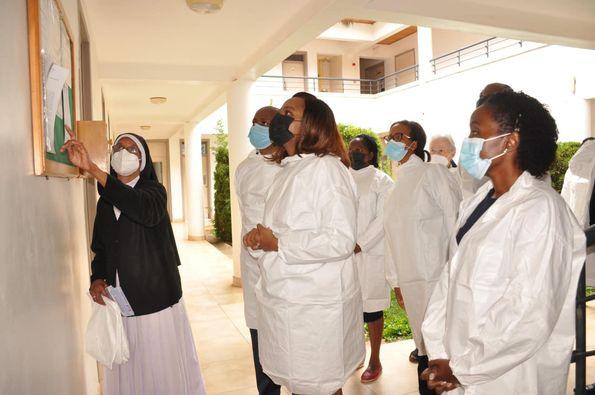In Kenya, more than 12,000 people have end-stage kidney disease requiring dialysis. Currently, more than 5,000 patients are on dialysis in Kenya. This is according to data provided by the ministry of health.
There are currently 214 dialysis units countrywide in our public (54), private (143) as well as faith-based (17) health facilities.
According to the Chief Administrative Secretary Ministry of Health Dro Mercy Mwangangi, what is astonishing is there are only 41 nephrologists and 560 nurses in the country to deal with all these patients.
All is not doom
Dr Mwangangi says that there have been success stories that have given life to our kidney patients. According to The ministry of health statistics, 661 kidney transplants have been carried out in the country since 2006. Thanks to you my fellow doctors in the room some of whom if not all have been responsible for this great success.
Also Read: Health SMEs still struggling for funding: finding
Speaking at the Renal Conference, Dr Mwangangi said that kidney transplantation is the treatment of choice for End-stage kidney disease and there are multiple kidney transplant centers in Kenya. Crucially the onset and
progression of chronic kidney disease are often preventable. Preventive interventions include early medical check-ups, control of blood pressure, blood sugars and cholesterol and weight loss. The worsening of chronic kidney disease to end-stage can also be slowed down.
Dr Mwangangi said that Kidney-disease is projected to become the 5th leading cause of premature deaths globally by the year 2040.
“It is also estimated that almost 5,000,000 Kenyans are living with chronic kidney disease.” she said.
The CAS virtually addressed the conference due to work-related reasons that deterred her from traveling to the meeting venue.
Kidney disease in the COVID-19 era
Dr Mwangangi said that the common causes of chronic kidney disease in adults are high blood pressure and diabetes. Posttransplant patients and those undergoing haemodialysis are at a high risk of contracting COVID-19
disease. COVID-19 disease has high mortality in this cohort of patients. Therefore, this group of patients should be considered a priority for the COVID 19 vaccination.
The CAS noted that reimbursement of haemo-dialysis by the National Health Insurance Fund (NHIF) has greatly
increased access to this service, with the number of patients on regular dialysis increasing by more than 10 –
fold since this policy change came into effect. That is (from ~300 patients to ~5000 patients today).
Also Read: Will Cuban doctors help cure Kenya’s ailing healthcare system?
She also noted that the country is also making major strides, in that with recent establishment of East Africa Kidney Institute which has also been approved as an International Society of Nephrology training centre, we are bound to have more trained nephrologists.
“We have also witnessed a steady increase in the number of dialysis units to 210 by the end of 2020.
More hospitals have also come up to offer kidney transplant services. This has increased the number of transplants done locally. Another major milestone is also the recent adoption of Kenya Organ Donation and Transplant Bill,” she said.
Challenges affecting the renal health in Kenya
Dr Mwangangi said that the ratio of nephrologists to patients is still low. There is still a need to train more of them. Secondly, she said that Renal Replacement Therapy financing challenges persist as well as PD and transplantation. Some insurances also do not reimburse for post-transplant care and patients’ dialysis. There is also the issue of mushrooming of substandard hemodialysis units that need to be addressed. And there is also a lack of oversight authority for kidney transplants.
The Future of Renal health
Dr Mwangangi said that setting up a transplant authority to oversee the donation and transplant process and outcomes in the country – Kenya Organ & Tissue Transplant Services (KOTTS) is key.
Also read: Kenya makes tremendous strides in fight against HIV
The CAS said that Already the World Health Organization is organizing a global meeting to discuss this issue with all the stakeholders.
“The Kenya Medical Practitioners and Dentist Council (KPMDC), with the assistance of Kenya Renal Association,
should conduct regular inspections of all HD units to make sure that international standards are adhered to before issuing any licenses. The EAKI has applied for recognition from the ISN to be a regional training Centre. This will go a long way in ensuring the high standards of training are maintained.” said Dr Mwangangi.
She said that the National Hospital Insurance Fund are strongly considering reimbursing the 3rd session
per week for kidney patients. If this happens then it will benefit majority of Kenyans who currently only get two
sessions per week which are not adequate. Worldwide the minimum recommended sessions for dialysis are thrice a week for those with chronic kidney failure.
CAS also revealed that NHIF is at an advanced stage of working out a comprehensive package for kidney transplant patients and their donors.
